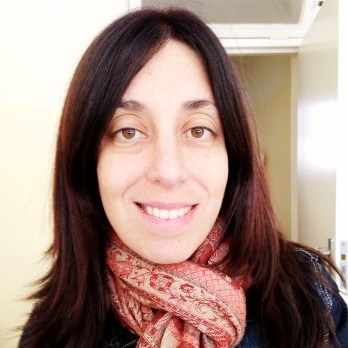
News

No more Mr Nice Guy: Mordechai’s intervention in the narrative of Esther
ADINA ROTH
If we live in a universe that is predicated on the Torah, we live in a “universe filled with meaning and purpose”. If this is the case, then each of our lives is intertwined with a larger destiny, and our small story has a role to play in the bigger narrative.
This is why our rabbis teach us that we should keep a note in our pocket with the message, “For me was the world created.” This notion of a universe filled with meaning is explored in the fourth chapter of Esther after Mordechai has learned of Haman’s decree against the Jewish people.
At this point, Mordechai places himself outside the palace gates in sackcloth and ashes. When Esther sends a messenger to assist him, he conveys the terrible news. Esther is distressed, but she immediately expresses that she is without power to intervene.
The king has not summonsed her for days, and if she goes to the king without an invitation, it would mean almost certain death. One can imagine what is going through Esther’s mind at this time. She is frightened for her life, feels incapable of taking on a challenge of such great proportions, and is convinced of her failure.
What Mordechai says in response might constitute the first, ancient “intervention” – that modern phenomenon made popular by 12-step programmes and the self-help shark addicts’ support group in Finding Nemo. An intervention occurs when a friend confronts a person about their self-destructive behaviour, and goads them to take action to embody their potential.
Mordechai says to Esther: “Don’t imagine in your soul that you will be able to escape in the king’s palace… who knows whether it was just for such a time as this that you have attained the royal position.”
Mordechai’s words contain the urgency of a wake-up call.
Indeed, he warns Esther that she will perish and disappear into oblivion if she fails to intervene on behalf of the Jewish people. But to think that Mordechai is simply inciting Esther into acting on his behalf, or even on behalf of the Jewish people, is to miss the point.
Mordechai is challenging Esther to step into her own destiny, to live a life filled with largesse and purpose. Mordechai is reminding Esther that “G-d looked into the Torah and created the world”, that there is a deeper meaning to her life.
Being a queen to the Persian king might feel like a type of greatness, but Mordechai reminds her that in the bigger picture she would be consigned to the annals of ancient history. Esther needs to realise that she is queen for a reason beyond her own edification that will transform her into a woman of true greatness.
Instead of terrifying her, Mordechai’s words seem to release Esther from the vice of fear. She finds her own voice, discovers clarity of action, and instructs Mordechai what to do next. The rest, one could say, is history.
Mordechai’s wake-up call to Esther could be understood through the Kabbalistic qualities of chesed and gevurah. Chesed is the quality of compassion, love, expansiveness and generosity, whereas gevurah is about strength, boundaries, firmness and containment.
Were Mordechai to have sympathised with Esther, he would have ended up colluding with her fear and the small vision of life she had chosen for herself. Instead, he opts for gevurah, and chooses to confront and challenge Esther. In this instance, his gevurah saves her life and the welfare of the Jewish people.
I believe this is something we humans struggle with in our various roles as employers, spouses, parents and friends. The quality of kindness can become romanticised to the point that we end up colluding with a person’s sense of victimhood, and leave them stuck in their wallowing mud.
It is sometimes harder to confront; certainly there is more risk involved. If the person involved does not take our confrontation well, we could end up harming a relationship.
The clue for how to navigate this tension between chesed and gevurah, between empathising and challenging, comes again from Mordechai’s approach to Esther. Hidden in his words is the message to Esther: “You are bigger and better than this.”
His confronting her is ultimately about holding up a vision to Esther of the better person she can become. His words offer her a larger sense of self and her place in the Jewish story. Mordechai’s challenge to Esther reflects her capaciousness, not diminishment.
As we enter Purim this year, and play with our dress-ups and disguises, let us use this time for a little self-reflection. Remember Mordechai’s words at the heart of the Megillah and contemplate where we might have opted for identities or lives that are too small for us. Let us find the courage, like Esther, to step into the shoes of our own destinies, to find our voices and assist in the healing of our communities and world.
- Adina Roth is a clinical psychologist in private practice and a teacher of Jewish studies. She runs an independent barmitzvah and batmitzvah programme in Johannesburg and teaches Tanach to adults.




